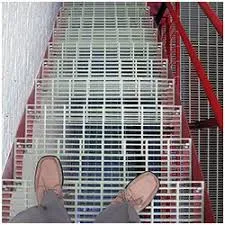
-
 Afrikaans
Afrikaans -
 Albanian
Albanian -
 Amharic
Amharic -
 Arabic
Arabic -
 Armenian
Armenian -
 Azerbaijani
Azerbaijani -
 Basque
Basque -
 Belarusian
Belarusian -
 Bengali
Bengali -
 Bosnian
Bosnian -
 Bulgarian
Bulgarian -
 Catalan
Catalan -
 Cebuano
Cebuano -
 China
China -
 China (Taiwan)
China (Taiwan) -
 Corsican
Corsican -
 Croatian
Croatian -
 Czech
Czech -
 Danish
Danish -
 Dutch
Dutch -
 English
English -
 Esperanto
Esperanto -
 Estonian
Estonian -
 Finnish
Finnish -
 French
French -
 Frisian
Frisian -
 Galician
Galician -
 Georgian
Georgian -
 German
German -
 Greek
Greek -
 Gujarati
Gujarati -
 Haitian Creole
Haitian Creole -
 hausa
hausa -
 hawaiian
hawaiian -
 Hebrew
Hebrew -
 Hindi
Hindi -
 Miao
Miao -
 Hungarian
Hungarian -
 Icelandic
Icelandic -
 igbo
igbo -
 Indonesian
Indonesian -
 irish
irish -
 Italian
Italian -
 Japanese
Japanese -
 Javanese
Javanese -
 Kannada
Kannada -
 kazakh
kazakh -
 Khmer
Khmer -
 Rwandese
Rwandese -
 Korean
Korean -
 Kurdish
Kurdish -
 Kyrgyz
Kyrgyz -
 Lao
Lao -
 Latin
Latin -
 Latvian
Latvian -
 Lithuanian
Lithuanian -
 Luxembourgish
Luxembourgish -
 Macedonian
Macedonian -
 Malgashi
Malgashi -
 Malay
Malay -
 Malayalam
Malayalam -
 Maltese
Maltese -
 Maori
Maori -
 Marathi
Marathi -
 Mongolian
Mongolian -
 Myanmar
Myanmar -
 Nepali
Nepali -
 Norwegian
Norwegian -
 Norwegian
Norwegian -
 Occitan
Occitan -
 Pashto
Pashto -
 Persian
Persian -
 Polish
Polish -
 Portuguese
Portuguese -
 Punjabi
Punjabi -
 Romanian
Romanian -
 Russian
Russian -
 Samoan
Samoan -
 Scottish Gaelic
Scottish Gaelic -
 Serbian
Serbian -
 Sesotho
Sesotho -
 Shona
Shona -
 Sindhi
Sindhi -
 Sinhala
Sinhala -
 Slovak
Slovak -
 Slovenian
Slovenian -
 Somali
Somali -
 Spanish
Spanish -
 Sundanese
Sundanese -
 Swahili
Swahili -
 Swedish
Swedish -
 Tagalog
Tagalog -
 Tajik
Tajik -
 Tamil
Tamil -
 Tatar
Tatar -
 Telugu
Telugu -
 Thai
Thai -
 Turkish
Turkish -
 Turkmen
Turkmen -
 Ukrainian
Ukrainian -
 Urdu
Urdu -
 Uighur
Uighur -
 Uzbek
Uzbek -
 Vietnamese
Vietnamese -
 Welsh
Welsh -
 Bantu
Bantu -
 Yiddish
Yiddish -
 Yoruba
Yoruba -
 Zulu
Zulu
grp pipes and fittings for ship building
The Importance of GRP Pipes and Fittings in Shipbuilding
Glass Reinforced Plastic (GRP) pipes and fittings have increasingly become a vital component in the shipbuilding industry. As the maritime sector continues to evolve with stringent regulations for durability, weight reduction, and resistance to corrosion, GRP materials have emerged as an ideal solution. This article explores the advantages of GRP pipes and fittings and their significance in modern shipbuilding.
One of the primary benefits of using GRP pipes is their light weight. Traditional materials like metal can significantly increase a vessel's overall weight, impacting fuel efficiency and cargo capacity. GRP pipes, being much lighter, contribute to better performance in these areas. A lighter ship consumes less fuel, leading to lower operational costs and reduced environmental impact, which is crucial in today’s industry where sustainability is key.
Corrosion resistance is another critical advantage of GRP pipes. Ships operate in harsh marine environments where exposure to saltwater can cause severe deterioration of traditional materials. GRP, however, is inherently resistant to corrosion, reducing maintenance costs and extending the lifespan of the piping systems. This quality not only contributes to the longevity of the vessel but also enhances safety by minimizing the risk of leaks and failures.
grp pipes and fittings for ship building

Additionally, GRP pipes offer versatility in design and installation. They can be manufactured in various diameters and shapes, making them suitable for diverse applications throughout the ship, including ballast systems, sewage systems, and water supply lines. Their ease of installation further reduces labor costs and construction time, allowing shipbuilders to complete projects more efficiently.
Moreover, GRP materials are excellent insulators. They help maintain the temperature of the fluids being transported, thereby enhancing the overall efficiency of onboard systems, such as heating and cooling. This characteristic is especially beneficial in maintaining comfort for passengers and crew.
In terms of compliance with marine standards, GRP materials can be engineered to meet specific regulations and certifications required for shipbuilding. This adaptability ensures that ships equipped with GRP pipes and fittings adhere to international safety and performance standards.
In conclusion, the integration of GRP pipes and fittings into shipbuilding presents numerous benefits, including weight reduction, corrosion resistance, design flexibility, and thermal insulation. As shipbuilders seek to create more efficient, durable, and environmentally friendly vessels, GRP materials will undoubtedly play a crucial role in shaping the future of the maritime industry. By opting for GRP technologies, shipbuilders can enhance the performance of their fleets while also adhering to the stringent demands of modern maritime operations.









